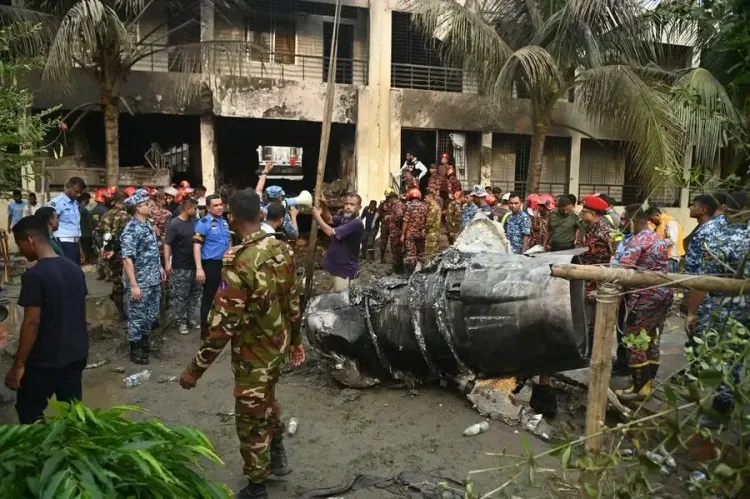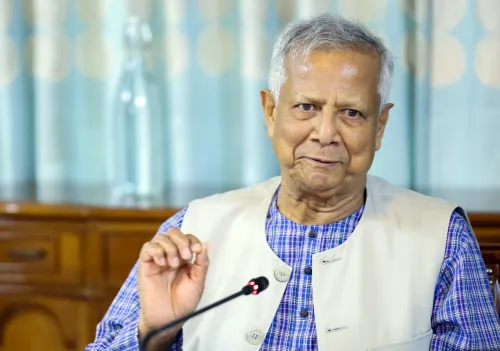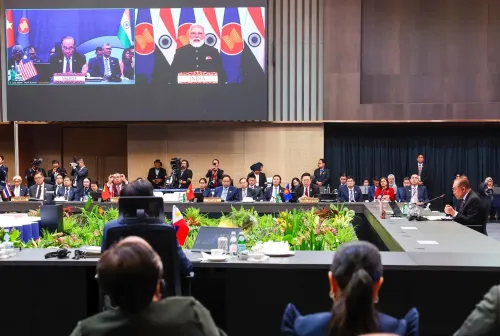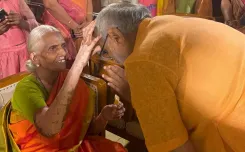What Steps is the Indian Medical Team Taking to Assist Burn Victims of the Dhaka Air Crash?

Synopsis
Key Takeaways
- India's medical team is providing critical support for burn victims.
- The incident has resulted in national mourning in Bangladesh.
- Prime Minister Modi has expressed condolences and support.
- The crash raises concerns about aviation safety standards.
- International cooperation is crucial in crisis situations.
Dhaka, July 23 (NationPress) A specialized medical team from India has landed in Bangladesh to assist in the treatment of burn victims from the recent fighter jet crash at Milestone School and College in Dhaka.
An official from the Indian High Commission in Dhaka confirmed the team’s arrival at 9:30 PM (local time), as reported by The Business Standard based in Bangladesh.
The official stated, "This team comprises doctors and nurses from two of India’s premier institutions for burn care and plastic surgery, Ram Manohar Lohia Hospital and Safdarjung Hospital in Delhi."
The Indian medical professionals will evaluate the victims' conditions and advise on subsequent treatments, which may include transferring some individuals to Indian facilities for advanced care. Depending on their initial assessments, additional medical teams could be sent.
This tragic incident unfolded on Monday when a Bangladesh Air Force F-7 BGI training aircraft crashed onto the Milestone School and College grounds in Dhaka’s Uttara area, resulting in 32 fatalities and injuring over 162 individuals.
Prime Minister Narendra Modi expressed his condolences regarding this calamity and assured Bangladesh of India’s unwavering support. Following this, the Indian High Commission in Dhaka formally contacted the Bangladeshi government to offer essential medical aid for the injured.
The incident has led to nationwide mourning in Bangladesh, with flags being flown at half-mast and widespread public sorrow. Reports indicate that the pilot, Flight Lieutenant Toukir Islam, attempted to steer the aircraft away from populated regions before the crash.
India’s prompt response highlights the humanitarian aspect of its regional relations and illustrates the strong diplomatic ties between the two countries. This gesture has been positively received in Bangladesh, where there is growing public frustration over the use of outdated aircraft for training in urban settings.
As inquiries into the crash's causes continue, India’s medical support is expected to be pivotal in aiding the recovery of the survivors and the overall healing process.
The tragedy has also reignited calls for enhanced aviation safety regulations and improved urban planning to avert future tragedies.









